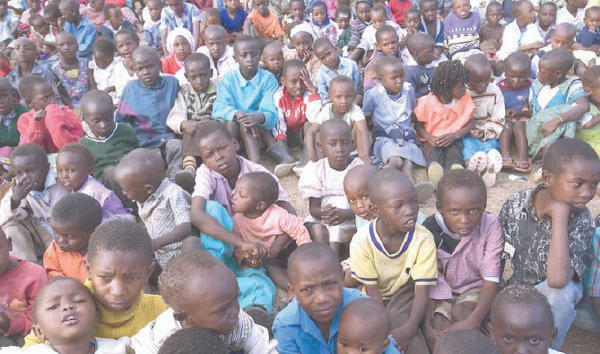The Child Protection Law was enacted by the Kano State Government during the previous administration under former Governor Umar Abdullahi Ganduje.
With this development, the total number of states that have adopted this law has reached 35, with the exception of Bauchi.
The Chief of UNICEF Field Office in Kano, Rahama R.M. Farah, highlighted that the Kano State Child Protection Law is a significant achievement benefiting the children and people of Kano. It is worth noting that the United Nations General Assembly adopted the Act in 1989, and it was subsequently signed into law in Nigeria as the Children’s Rights Act of 2003.
The essence of the UN Convention on the Rights of the Child, considered the most widely ratified human rights treaty in history, grants every child the rights to survival, development, protection, and participation. The convention also emphasises viewing children as individuals and members of families and communities.
Regrettably, the situation for the average Nigerian child regarding their rights remains pitiable.
What Is The Value Of Your Child’s Life
Empirical evidence, spanning several decades, supports our deep concern regarding the number of out-of-school children, victims of terrorism, children with severely low nutritional status, and those subjected to various forms of abuse.
For example, as of May 2022, approximately 18.5 million children, 60 percent of whom were girls, lacked access to education in Nigeria. Farah stated that the numerous attacks on schools by jihadists and criminal gangs in the northern regions have severely affected children’s education.
The fact that this alarming figure rose sharply from 10.5 million in 2021 should trouble the governors of states that have yet to adopt the Child Rights Act.
According to the United Nations Educational, Scientific and Cultural Organization (UNESCO), around 20 million children are currently out of school in the country. Since the 2014 Boko Haram abduction of 200 schoolgirls from the northeastern town of Chibok, several schools have been targeted in similar mass abductions.
In 2021, approximately 1,500 students were kidnapped by armed men, as reported by UNICEF.
Regrettably, the Human Development Index (HDI) for the average Nigerian child is at the bottom rung of the socio-economic and food security ladder. UNICEF explains that many pregnant women, including an estimated two million children in Nigeria, suffer from Severe Acute Malnutrition (SAM).
However, only two out of every 10 affected children are currently receiving treatment.
Children’s rights violations also encompass various forms of abuse that they face virtually on a daily basis. Unfortunately, only a fraction of these children receive the necessary help in a timely manner.
In fact, UNICEF reveals that six out of every 10 children experience some form of violence, with one in four girls and 10 percent of boys being victims of sexual violence.
Despite these challenges, the federal government has established institutions to address child protection issues, such as the National and State Child Rights Implementation Committees and Child Development Departments in the federal and state ministries of Women Affairs.
It is crucial to note that the Child Rights Act establishes a legal framework to ensure the protection of children’s rights within each state. Now that the law has been established, it is vital for state governments to allocate the necessary resources and establish mechanisms for its effective implementation.
In the considered opinion of this newspaper, Nigeria’s future cannot be promising if its future leaders are not deliberately cared for and nurtured.
Simply signing the law into place is not enough; concerted efforts must be made to address the daily challenges faced by our children by establishing concrete frameworks for implementation.
We urge the new administration to take this vital step and provide adequate resources to ensure the comprehensive enforcement of the law.
Furthermore, we call on the remaining state of Bauchi to learn from its counterparts and take immediate action without further delay. Likewise, those states that have already adopted the law should rise up to the task of protecting our children.
Consequently, protecting the rights and well-being of children is a collective responsibility that requires concerted efforts from the government, communities, and individuals. The enactment and implementation of child protection laws are essential steps in addressing child abuse. State governments should prioritise the establishment of necessary frameworks, allocate adequate resources, and collaborate with relevant stakeholders to ensure the comprehensive enforcement of these laws. Only by safeguarding our children can we secure a brighter future for Nigeria.





